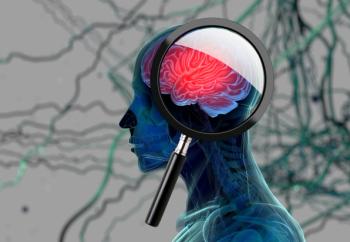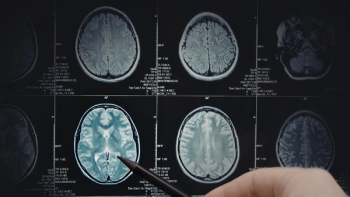
- Summer 2008
- Volume 7
- Issue 2
Managing Symptoms: Tumor Effects
Brain tumors can cause a variety of mental, emotional, and physical side effects.
Since the brain controls so many of the body’s functions, brain tumors cause a wide array of symptoms that can differ from one patient to the next. Although many symptoms and side effects of the tumor can be alleviated with surgery, they often persist even after removal of the cancer.
A common and perhaps the most disturbing, side effect is seizures, which result from disruption of normal electrical activity in the brain. Because seizures can themselves be dangerous, it is critical to control their frequency and severity when possible. Several drugs help curb seizures, including Dilantin (phenytoin) and Tegretol (carbamazepine), and newer drugs are available for treatment-resistant seizures. If seizures still occur, patients may be restricted from certain activities, such as driving.
Another frequent side effect of brain tumors is an unusual headache. Surgery can ease the headaches, or steroids can be used to reduce swelling and therefore relieve pain.
More lasting effects, such as muscle weakness, mobility problems, and even partial paralysis, may require a rehabilitation program. Physical therapy can improve balance, coordination, and muscle strength.
For some patients, the tumor or its treatment interferes with concentration, problem-solving abilities, and memory. Short-term memory problems hamper a patient’s ability to remember to take medications, so a daily planner may be necessary.
Vision and hearing defects are not uncommon in brain tumor patients. In one tumor-associated vision disorder, known as hemianopia, half the field of vision in each eye is lost. Recently, special glasses have been designed that use prisms to fill in the missing images. More advances of this sort are expected as research and technology improve.
Speech and language problems are a frequent and frustrating side effect of brain tumors. Patients often know what they want to say but have trouble putting their thoughts into words. Speech therapy is used to help restore language abilities.
Susan Chang, MD, of the University of California, San Francisco, says more research is needed to address quality-of-life issues for brain tumor patients and to determine if current rehabilitation programs are actually helpful. “The aim for most research is to give these patients more time,” she says. “But we need to balance that with the quality of that time. To get research dollars for that, we first need to show that rehabilitation programs work.”
The
Articles in this issue
over 15 years ago
On a Rollover 15 years ago
Detection Toolsover 15 years ago
Federal Laws Against Employer Discriminationover 15 years ago
Understanding Hereditary Cancerover 15 years ago
A Difficult Inheritanceover 15 years ago
Healing Escapesalmost 17 years ago
Web Exclusive: Another Sonalmost 17 years ago
Web Exclusive: Saving Livesover 17 years ago
Breaking News from ASCOover 17 years ago
A Better Way to the Brain


